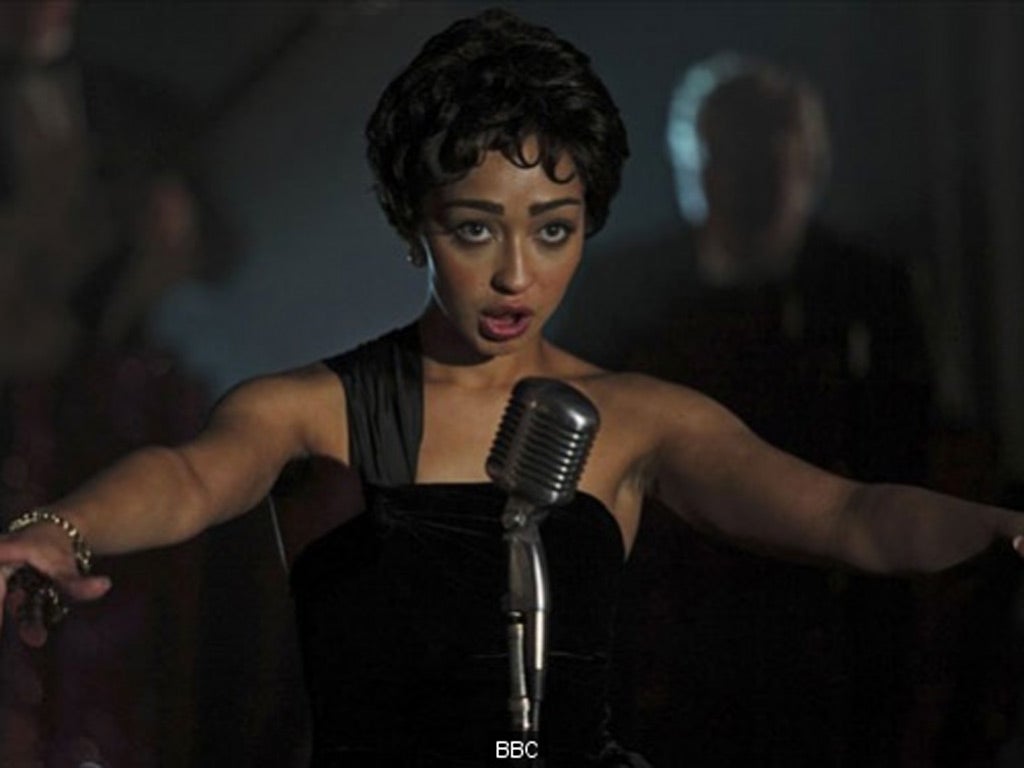Last Night's TV: Shirley, BBC2 / Time Shift: Dear Censor, BBC4

Your support helps us to tell the story
From reproductive rights to climate change to Big Tech, The Independent is on the ground when the story is developing. Whether it's investigating the financials of Elon Musk's pro-Trump PAC or producing our latest documentary, 'The A Word', which shines a light on the American women fighting for reproductive rights, we know how important it is to parse out the facts from the messaging.
At such a critical moment in US history, we need reporters on the ground. Your donation allows us to keep sending journalists to speak to both sides of the story.
The Independent is trusted by Americans across the entire political spectrum. And unlike many other quality news outlets, we choose not to lock Americans out of our reporting and analysis with paywalls. We believe quality journalism should be available to everyone, paid for by those who can afford it.
Your support makes all the difference.If you wanted to watch a decent drama about the showbiz life then Shirley will probably have come as something of a disappointment. But if you were looking for a template for the bog-standard biopic it's hard to imagine that you could do better. Just follow Shelagh Stephenson's script scene by scene (at least as it ended up on screen here) and you'll find yourself with a serviceable rags-to-riches-by-way-of-heartbreak tale. In fact, so dutifully did Shirley follow the traditional itinerary for the genre that I did wonder whether scriptwriting software might have been involved in its creation.
Rule One, scrupulously observed here, is to begin with your star at his or her apogee. This reassures the audience that they're going to get what they've paid for and allows the extended historical flashbacks to be neatly bookended. Never be afraid to underline things either: "When you look in the mirror, who do you see?" asked Shirley's mum in the opening scene, helpfully initiating a string of (literally) reflective moments. After that, it's time to rewind to the humble beginnings – Tiger Bay poverty deftly established with a pram loaded with the family belongings and little Shirley's guileless unawareness of her own destiny ("Mam? You know singing an' that? Can you do it for a job?").
There's a limit to how much gritty realism a biopic can take, though, so pretty soon you'll need your first Eureka Moment, perfectly exemplified here by the scene in which Shirley's agent-to-be has his jaded cynicism about the odd girl from Splott ruptured by the first three notes of her audition. Then it's time for Painful Sacrifice No 1, as Shirley has to choose between career and her baby Sharon. After which, you should probably get on to the Training Montage – in this case a sequence detailing Michael Sullivan's Pygmalion transformation of Shirley from Tiger Bay bit of rough into husky-voiced goddess of the nightclubs.
Initial success is pretty straightforward. You might start with Eureka Moment No 2 (Shirley realising that she has the kind of voice that can quieten the crowd at the Glasgow Empire) before sprinkling in some shots of champagne being opened and one of those whirling collages of playbills and trade-paper headlines. And after that, it's pretty much repeat as before, according to your needs. Not every life will provide a Eureka Moment No 3 quite as distinctive as the one we had here (Shirley's discovery that her husband hasn't kept his promise to give up the boys, stormily accessorised with Maria Callas on the soundtrack), but then you're responsible for your own choice of subject matter. A bit of melodrama helps – or, if your character is as flamboyantly framed as Shirley Bassey, a lot of melodrama. And finally, you can round things off by going back to the beginning and giving your lead a line of defiant self-realisation. In the right circumstances you might even be able to recycle Stephenson's ("I'm my own woman now, Mam, and nothing's going to stop me"), though for anyone but Bassey, the belting rendition of "This Is My Life" would probably be regarded as over-egging it. Ruth Negga, incidentally, will almost certainly go on to have better things than this on her CV.
BBC censorship had a small walk-on role in Shirley, which referenced the Corporation's stuffy attitude to her first single, "Burn My Candle (At Both Ends)". How far we've come since 1956 was evident from Time Shift's fascinating film Dear Censor, a history of the British Board of Film Classification that included scenes (and words) that would have been tricky to broadcast even 10 years ago, and all of which were deemed unscreenable in their day. Some of these now seem comically timid, such as the censor's view that Britain's teenagers should be protected from the sight of "ridiculous and ineffectual parents" in Rebel without a Cause. But some of them, intriguingly, are more offensive today than they were when they first came out, including the rape scene in Straw Dogs and pretty much anything filmed by Michael Winner. I'm afraid I abandoned all thought of dispassionate judgement of this film from the moment they slyly cut to Winner immediately after a contributor had talked of "film-makers with less reputable intentions [jumping] on the bandwagon". But even if you believe him to be an unsung auteur of the nudist exploitation movie I think you would have found this trawl through the BBFC's written archives intriguing. As Matthew Sweet rightly pointed out at the beginning, there's no better record of that most perishable part of social history, the sense of common decency.
t.sutcliffe@independent.co.uk
Join our commenting forum
Join thought-provoking conversations, follow other Independent readers and see their replies
Comments